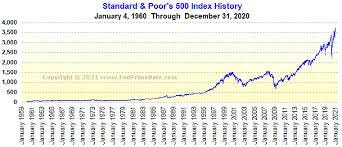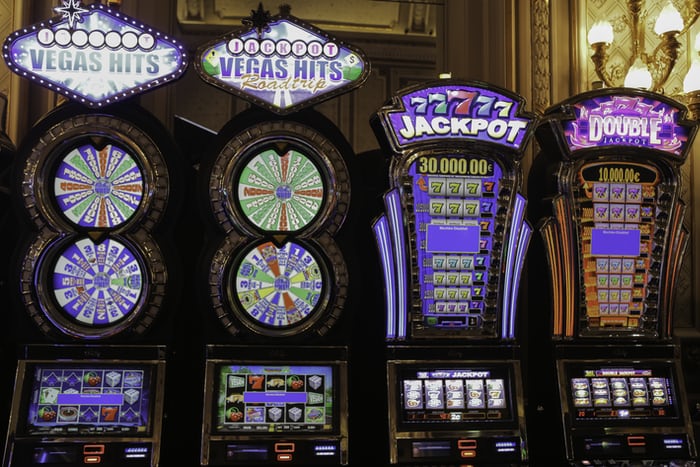Financial hardship is the biggest stressor in American’s lives.
90% of the time we worry about the things that are beyond our control.
Yet, 70% of our worries result in the opposite of what we are feeling.
So why do we stress out anyway if it’s not in our control?
Well because the world is turning daily and as new innovations, ideas, businesses, investments grow and expand, so should we.
The stock market is full of FOMO and anxiety is tied direclty to it.
Instead of fretting about the market all day long as a fanatic day trader, spend your time studying a company’s valuations, future prospects, competitions, balance sheets, you name it to get a better picture of where it’s headed and most importantly, your value of it based on fundamentals not speculation.
Volatility in the stock market should really be accepted as “an investing opportunity” that’s normal instead of unusual.
Stocks are volatile by nature.
Most volatility we cannot control, it is moved by random retail investors on Reddit buying and betting meme stocks, stimulus pumped by the Fed, political or foreign tension, Musk’s tweets or handles and crazy other factors that we have no idea about especially since the market is trading in 5–7 months from now in the distant future, not in current time so who knows what will happen in a few months!
All that is guaranteed is volatility and uncertainty.
Deal with the swings and don’t engage your emotions.
Let’s examine specific world events that have accelerated volatility the most in the past:
-International and national economic crises
-Wars, political issues
-Natural dIsasters
-Fake news and media
-Pandemics and mental health crisis
-Rising unemployment and unstable employment
-Collapsing of financial markets
-Frozen credit opportunities like in the 2008 market crash
Many investors begin to question their investment strategies during volatile times and forget that market volatility is natural for markets: moving up and down over time. It will always balance out overtime as the S&P500 for instance has alway gone up and proven gains.

But before you panic, everything starts with a basis of education.
Why is education so important you may ask?
-You never loose it
-It pays dividends over time if applied correctly in life
-Helps you create new connections, form better ideas and instill fundamentals within decisions instead of speculation towards driving change
Before you invest in stocks, bonds, derivates, options, you name it, it’s all going to be volatile. That’s part of the game you are playing, but you don’t want to treat it like a game, especially if you are starting to invest because that can easily turn into a Reddit type addiction that you want to avoid at all costs.
Instead, let’s go over the top investment strategies any risk averse, semi-averse or totally confidence risk lover should be aware of:

#1: Put Emotions At Bay
The worst thing you can do is panic sell or FOMO buy. Instead choose wisely and reallocate your investments not when you are drunk or tired, when you have a valid reason. Each year as an index investor, the market typically generates around 15% annual returns but that doesn’t mean it will always be like that.
The point of being an investor is to obviously grow your income but do it in a static way that doesn’t crumble into pieces.
Why put in all the effort and time to pick out individual stocks and then all flops?
Welcome to day trading.
But seriously, if you want to limit your risk but still be able to confidently deal with it, just rearrange and access your stock allocation when times get tough. Currently with the markets at a volatile star to the new year with the new president, vaccine rollout, Reddit frenzy, there’s a lot going on and investors are cautious about reopening trades. As a result, if you aren’t sure what the future holds for stocks, you need to become more cautious especially if everyone else is.
The worst mistake you can do is go against the crowd and panic sell based on emotions. Not only you have to pay capital gains tax, you will loose out on big wins in the future from simply not waiting.

#2: Cash Up
Liquid assets are those that are easy to buy and sell to convert to cash if case of emergencies.
Those who don’t believe in emergencies, get beaten the most.
Investors must stack up on cash, not too much preferably 5–20% of their net-worth in case something busts or an unexpected virus every century rolls into town and turns our world upside down.
Cash is king and although you might miss out on lots of profitable opportunities, you will also miss your home, livelihood and family if you don’t have enough cash on hand.
It’s that big of a deal!
Cash isn’t made for bull runs, they are made for bear markets when things are tough and they are inevitable to eventually happen some time unless you live under a rock and in that case, might as well keep all your investments in the stock market because you aren’t living life.
What’s only certain is uncertainty so prepare for the worst, hope for the best.
Instead of totally letting the cash just sit in your checking depreciating or making $.001 per month, move some to savings, a Roth IRA, if you are over the age of 59 to take it out at any time while letting it grow via compound interest or in treasury bonds and CDs that earn you a little more.

#3: Don’t Fixate on Historic Performance
If there’s one thing that repeats, it’s history.
Looking back at the mistakes we’ve made in the past are one of the best tools and indicators for planning for the future. Yet, since the past, is well, in the past, nothing can be predicted for the future. Even though such events such as recessions and inflation are likely to repeat as a healthy economic cycle does, what they will be caused by is uncertain.
According to history, economic recessions are every 7–10 years. From the Great Depression, to dot-com boom, then the housing crisis and now Covid pandemic, timing might be on par, but the type of recession is unknown.
Out of all investing strategies, pooling money into active mutual funds isn’t going to yield as high returns compared to ETFs. Yes, hedge funds that notoriously trade on leverage and are all about active investing do make a hefty amount of change, on average $2 billion per year which is pretty good for my standards, for the average retail investor who most likely has some accumulating debt from their teens or poor purchases they’ve made in the past, passive investing is always the way to go to take the safe route, especially these days when reopening trades are lagging and Zoom keeps zooming longer than we want!

#4: International Markets
Although American indexes have been driving the most stock action and daily trade volumes of roughly $1 trillion dollars while delivering reliable returns for decades, doesn’t mean international ones aren’t either with even more value.
Yes, America may be the most innovative, expansive and expensive country in the world to invest and be a citizen of, but that doesn’t mean keeping some stock in international markets will do no harm.
Sure they might not lead to as big returns from the FAANGs, but diversification in some sense is more important than profits, especially during volatile times.
Foreign emergent markets such as Brazil and even London, one of the largest metropolitan cities in the world have developed markets with comparatively undervalued stocks that are a real bang for your buck while most Americans stick with US stocks and actually end up buying overvalued stocks, cough cough, DoorDash, Palantir, Airbnb, Tesla and more which are also more risky due to the volatility in the long run as they aren’t dividend payers.
This leads to the next strategy: undervalued value stocks.

#5: Undervalued Valuable Stocks
Never heard of such a thing?
Well, they surely exist.
The key to investing is ultimately to get the most bang for your buck. If you cannot find a reliable, pretty cost effective trade, then why spend all your money purchasing something that will flop?
Might as well turn into Melvin Capital who lost billions, 50% of its value due to shorting GameStop, the logical trade that should’ve flipped.
Secondly, sadly, you never want to go against retail investors anymore because those clans can be powerful than billion dollar funds and sway markets faster than Vlad Tenev Robinhood’s CEO halting trading.
Why are undervalued value stocks so valuable then?
Their undervalued enterprise value is in favor with the general investing public and although they aren’t as popular since they either just came to market or even in existence for too long on the market so no one pays attention to them, snooping around for great deals just like at the farmers market is always in your favor, especially taking more time to do so.
Based on specific metrics finding the best undervalued stocks comes down to evaluating the below-average price-to-book ratio, an above-average dividend yield, or a price-to-earnings ratio lesser than the industry level.

#6: Paying Attention To Dividend Stocks
Dividends are not free money.
You can learn so here. It is important to distinguish a growth vs dividend stock because one actually reinvests their retained earnings into the company to grow profits and your investments further and the other has a poor management system that gives away a portion of their cashflow as a nice thank you for 1–3% of their payout ratio.
Although I’m bashing out at dividends, they are personally one of my passive income streams because they earn a steady income even if the underlying sock price might fall.
They do not perform well during a high-interest rate environment as borrowing costs are high yet growth stocks do well during a low-interest rate environment, growth stocks could plummet or skyrocket and dividends stay consistent regardless.
In a stock market where the capital appreciation is more volatile and less certain for the foreseeable future, dividend payouts are vital to cash in on.
To choose the right and most profitable dividend stocks is up to your discretion but what is important to note is to pick stocks that meet specific liquidity and size requirements that contain a minimum of successive years of dividend increases. They fall under a handful of names that are reputable, stable firms.
These range from: Coca-Cola, Exxon, Pepsi, McDonalds, so on and so forth.

#7: Maxing Out The Roth IRA
Taking advantage of compound interest is a huge advantage as there is no quicker way to substantially grow your investments in a fund than with a Roth IRA. There are certain requirements though so make sure you are ready for them before getting charged and banned from opening one!
-You must contribute at least $5k and increases each year of your own income
-Cannot withdraw or use money until age of 59 or pay penalty
-This is a tax exempt, pre-tax so post-tax money fund so you pay taxes prior to investing which is a good thing since taxes rise every year!
There is no stock, even Tesla or BitCoin that can raise your money this fast and far along than with a Roth IRA.
So what are you waiting for?
Do you have one opened yet?

Wrapping It Up
In my opinion, high quality and superior earnings are the best protection when combined with good diversification during volatile times. We all have different risk tolerances but it is important to note your game plan before heading into a hectic earnings session and especially when BitCoin hits it’s all time high of 50k and social media is controlling the markets.
Who knows what will happen next!
Don’t worry. You’re in good hands if you follow these proven methods that I’ve all tested.
We’re all in the same boat but those who focus on preservation and fundamentals always win.
Cheers to rollercoasters!

